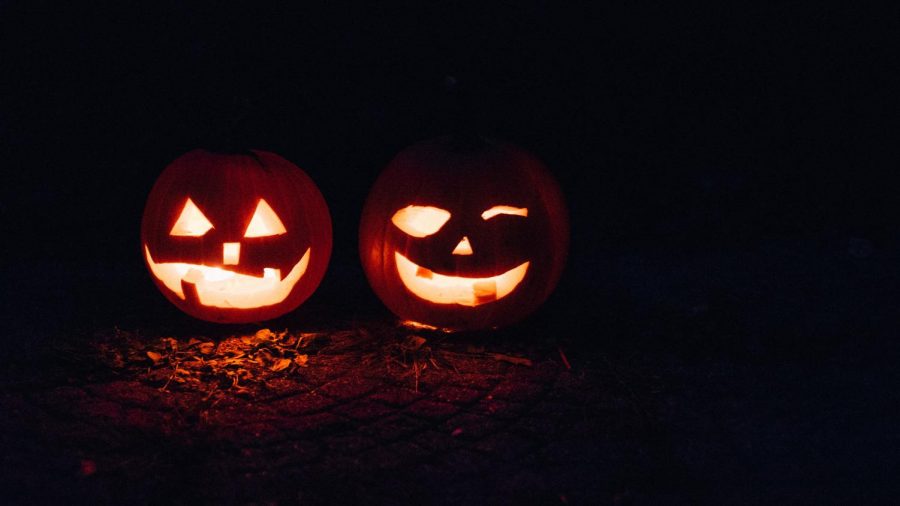This Halloween, some costumes should be left on the racks
October 29, 2020
Halloween is almost here, and that means it’s time for costume shopping! Finding the perfect costume can be a blast, but for those who are looking to stand out, there can be a fine line between a unique costume and something that’s completely offensive or inappropriate.
So, what should you steer away from when picking out a Halloween costume?
The first and most common costumes that you should avoid are costumes involving cultural appropriation. If it’s not your culture, it’s not your costume. This means you should definitely not don any costumes that appropriate a culture that is not yours.
What is cultural appropriation? Oxford Reference defines cultural appropriation as “a term used to describe the taking over of creative or artistic forms, themes, or practices by one cultural group from another.”
I cannot count the amount of times I’ve seen people dressed up in a generic, stereotypical “Native American costume.” Indigenous people’s culture is closed. A closed culture is one which, if you are not born a member of the culture or have actively been adopted into it, you are highly offending the culture when misappropriating it.
Because of the closedness of their culture, the traditional dress is sacred. It is utterly racist, and to some tribes an act of war, to insert yourself into their culture so you can “dress” like an Indigenous person.
Another example that I’ve seen online quite a bit is blackface. Blackface is someone without black or brown skin darkening their skin in order to look like a black or brown person. It doesn’t matter if one of your favorite celebrities or idols is black or brown: if you are not of that race, blackface is not okay.
Traditional stereotypes for different cultures can be seen all over Halloween store racks as well. The stereotypical Mexican costume with a sombrero, a hula skirt and coconut bra to look like the stereotypical Pacific Islander… These are just some examples of culturally appropriated costumes that can still be seen in 2020 at the racks at halloween stores.
No matter how cool you think you’ll look in a culturally appropriated Halloween costume, you should consider finding something else to wear. There are plenty of Halloween costumes out there that are cute and funny without being offensive to an entire culture.
Some may say that dressing in a costume of cultural garb separate from their own could be considered a celebration or appreciation of that culture. But the bottom line is that a culture is not just represented by items of clothing. For many, there are years and years of hardship that people have to face because of their culture. When one wears clothes specific to that certain culture when they didn’t experience the same hardships, it can feel mocking or rude.
You can celebrate and appreciate other people’s cultures separately by learning and admiring, not becoming. Listen to people’s stories that revolve around their culture and celebrate those instead of inserting yourself into something you don’t necessarily understand or something you don’t experience on the daily.
I have also seen costumes depicting stereotypes of mental illness. These types of costumes are just as bad as cultural appropriation, as you should never dress up in a costume that could be seen as making fun of someone with a mental disability or a disability in general.
No more straightjackets, eating disorder costumes, fake missing limbs or costumes highlighting insanity while picking fun at those who struggle with the disorder or illness on a daily basis. There are other ways to be cool and edgy without highlighting someone’s disability.
I also have seen people dressed as “hobos” and homeless people. Hopefully this trend dies out, as it’s completely rude. The amount of stereotypes put into play is one problem, but the other is the fact that many homeless don’t get to celebrate Halloween, and dressing as a typical “hobo” is making a mockery of actual homeless people.
Leave wars and other great tragedy events on the racks. I’m talking The Holocaust, 9/11, world wars, you name it. If it’s a huge tragedy—no matter what costume you’re thinking, whether of the soldiers or the victims or of those in the wrong—it’s not okay to poke fun at tragic events.
This means no stereotypical “terrorist” or “Nazi” costumes or, heaven forbid, Hitler costumes. Great tragedies are touchy subjects already, but dressing up as a part of those tragedies once again mocks the survivors or people closely associated with the events.
If you’re considering a costume and you suspect it may be offensive, it probably is. Always double check and think things through before making a decision that could hurt many people.
Not all cultures are closed and not all cultures are open. Some people may not mind you dressing in their culture or dressing up like them. However, it’s usually not just one person you’re offending when dressing as a different culture or a stereotype, but a whole group of people.
Halloween is just one night, but for people of ethnic minorities, people with disabilities, people with less than you, and people who have suffered immense loss, your costume is their everyday. They don’t get to play the role for a night and then take the costume off. Have respect and find a cool costume without having to offend someone else.


Ron Duncan • Oct 30, 2020 at 3:04 pm
As somebody of Irish/Scottish ancestry, if you aren’t descended from the Celts, you are engaging in cultural appropriation if you celebrate Halloween. My culture isn’t your entertainment.
As you choose to define it, “a term used to describe the taking over of creative or artistic forms, themes, or practices by one cultural group from another.”
By celebrating Halloween, you are taking over practices of a cultural group that isn’t your own.
Just wanted to point out the hypocrisy here.